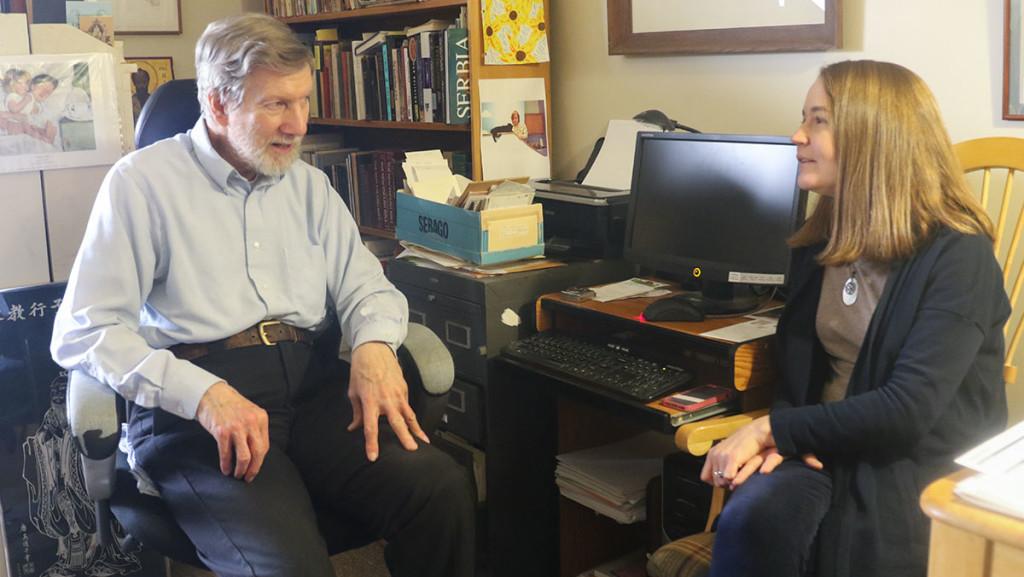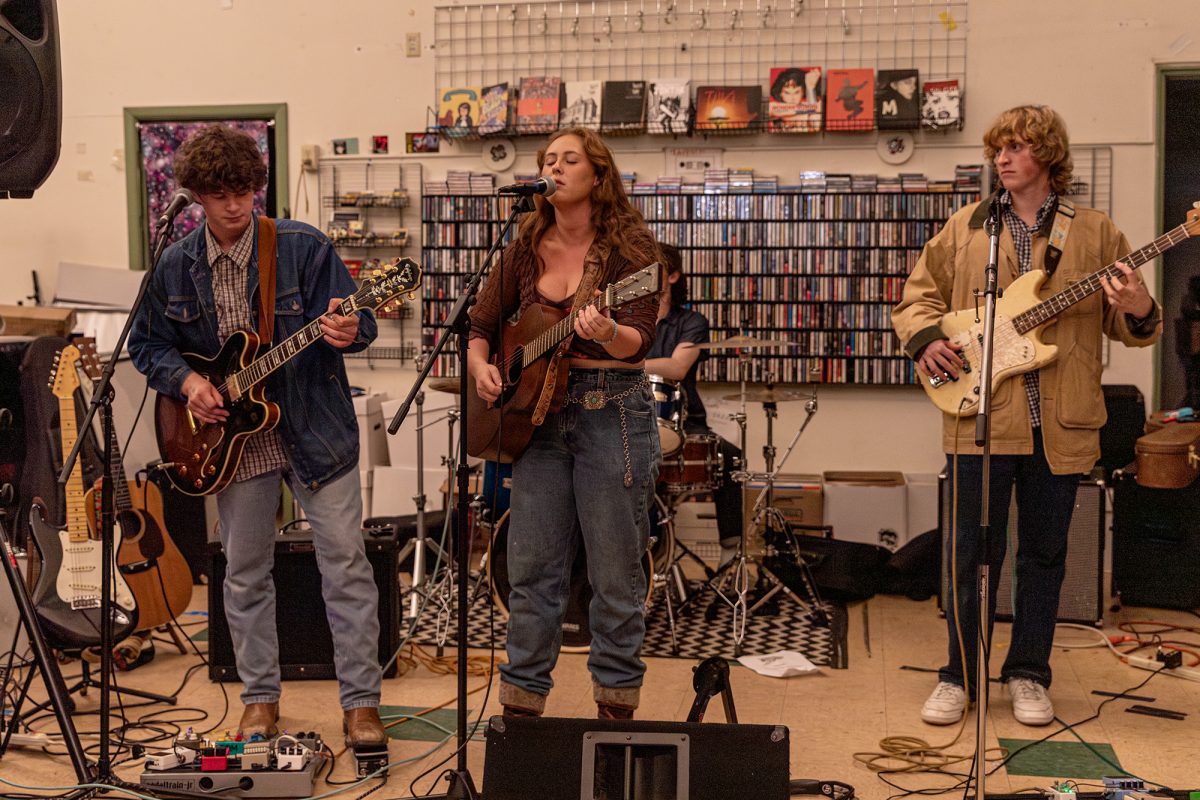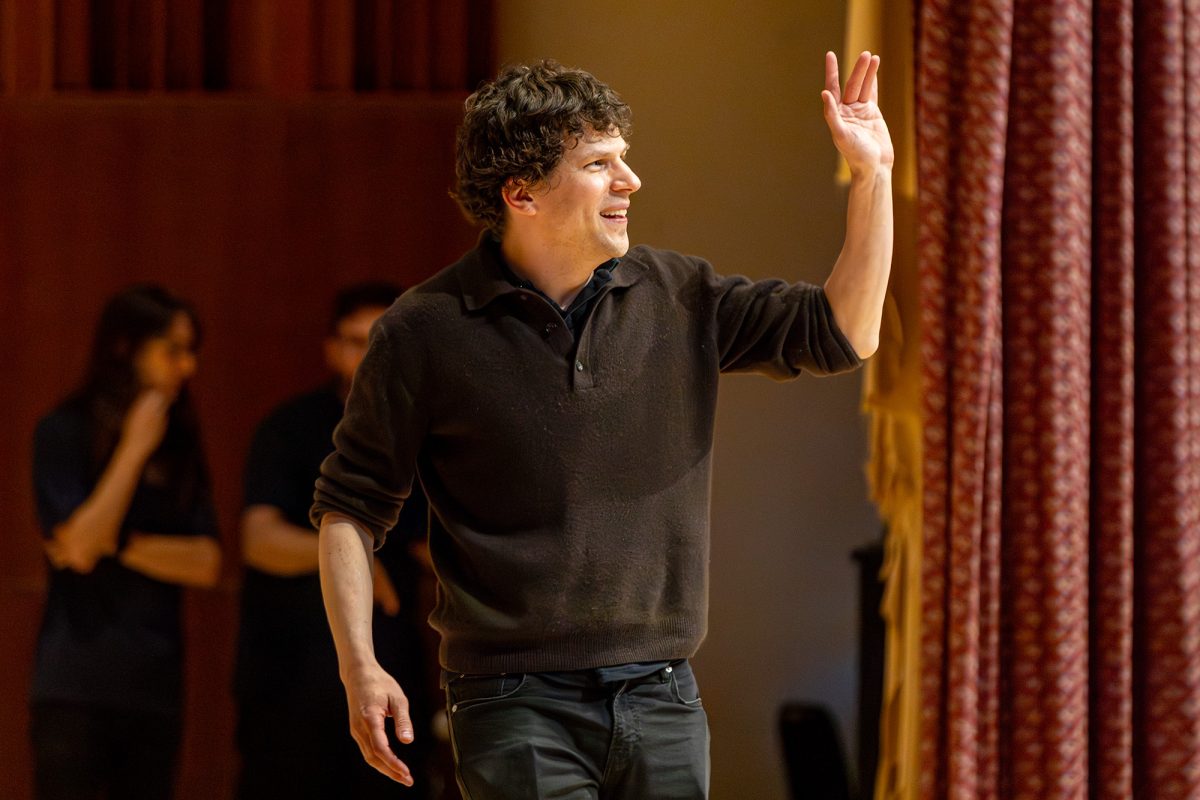Many would consider young college students and the elderly an unlikely match, but that is exactly the goal of Age on Stage, an intergenerational project whose goal is bringing the two groups together through theater. Founded by Elizabeth Bergman, associate professor of aging studies, Age on Stage gives students the opportunity to experience working with older adults by conducting plays in which Ithaca College students work with residents of Titus Towers, a senior living community in Ithaca. In March, Bergman received the 2016 Service Project Award for the Age on Stage project. Since 2012 when the project began, students and Titus Tower residents have produced four plays, each one written by Titus Tower resident Jim Tyler.
Life & Culture Editor Celisa Calacal spoke to Bergman and Tyler to discuss the Age on Stage project, the inspiration behind the plays and their impact on both students and the elderly.
Celisa Calacal: Let’s talk a little bit about the background of the play. How did it come to be?
Jim Tyler: The opportunity for it came when there were two of professor Bergman’s students who came here to interview me about five years ago, and we had a nice visit, and it turned out they were interested in theater. I had done some playwriting before … so I wrote them a play and gave it to them, and they gave it to professor Bergman, and she immediately saw the possibilities in this.
Elizabeth Bergman: So that was the spring semester of 2012. … We wanted to do it right away, but it was like two-thirds of the way through the semester at that point — it wouldn’t, couldn’t happen. So we decided for sure that we were going to do it the following fall, so when the fall started, I was teaching an Intro to Aging Studies course that semester and included it as an optional service project for the students to participate in.
CC: What is the play about?
JT: That particular play, which is called “Titus Towers,” is about two elderly women who arrive in Ithaca from West Texas, and they have decided, after investigation, that the best place to retire to anywhere is Titus Towers in Ithaca. So they show up, and they are welcomed, and the management says that they can probably find an apartment for them, but then it turns out that they were both born on Feb. 29, 1944, meaning that they have had only a small number of actual birthdays, and the regulations state that no tenant may be accepted into Titus Towers, a head of household tenant, until he or she has reached his or her 30s per se. And so there’s a major obstacle there that is very conveniently solved in short order because the play only lasts for about 15 minutes.
CC: So Age on Stage — is that the name of the project overall?
EB: Yeah, the overall name of the project ended up being Age On Stage. … I want students to learn in the classroom about aging, but I also really want them to get firsthand experience interacting with older adults and seeing the things that they’re learning about in the classroom unfold in real life.
CC: What have you enjoyed about writing all these short plays for the project?
JT: Well it’s like having a playground that I can play in anytime I want to go swinging on the trapeze or climbing the jungle gym. Writing a play is a lark, as they would say in England. It’s something that I am happy to put down everything else for and just imagine. … Then there’s the activity with other people who are interested, and that’s fun.
EB: It’s really as much about the rehearsals as it is about the production. At least as far as I’m concerned, it’s about the relationships that are formed and the fun that’s had during the rehearsals, and then the productions … just take on a life of their own, and they’ve become really anticipated by the residents here.
CC: Where do you get all your ideas from to write your short plays?
JT: The world is full of ideas. It takes me a while. Usually if I’ve got an idea for a play, to work it up into a usable story, so to speak, for a short play, it has to be fairly short, and in conventional playwriting, you need some time for the exposition of the state of affairs, the information about the people and the cast, and then you need a complication, an obstacle, something like that, which has to be grappled with by the people in the play, and then you finally have the resolution. … If you are interested in writing plays, then you can make your own world, you can make things happen just the way you want them to, which is rather unlike most of our everyday existence, and people are happy to come and watch if you can find people who are willing to stage it.














